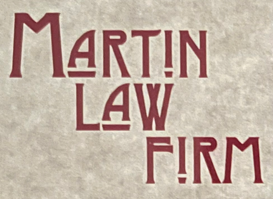FAQ
Q: What types of criminal charges do I handle in Minnesota?
I have actual experience handling almost all types of criminal cases a person is likely to encounter in the Minnesota state court system. I have actual experience in representing people in cases such as 1st and 2nd Degree Murder, arson, criminal sexual conduct, controlled substance offenses, firearm offenses, domestic assault, non-domestic assault, driving while intoxicated, and other license related traffic violations.
Q: How long have I been practicing criminal defense in Minnesota?
I am in my 26th year of practicing criminal defense law in Minnesota.
Q: What is your experience with jury trials in Minnesota Courts?
I have extensive trial experience defending people in front of juries over the many years of my practice. I have tried cases not only in the twin cities, but in greater Minnesota as well.
Q: What is the first step someone should take if he has been charged with a crime?
The first inclination is always to procrastinate. This is the worst course of action. Finding a knowledgeable attorney with whom you are comfortable discussing your circumstances is the best first step. It is important to find an attorney who you can trust and makes you feel comfortable.
Q: Can I explain the criminal process?
Minnesota has a complicated criminal process. It is often subject to the nuances of the local customs depending on the county in which you are charged. All Minnesota courts follow a general process (albeit sometimes with different terminologies) that lays out the timelines and types of hearing that occur in all criminal cases. In the most common circumstance, a person charged with a crime is either summoned into court when a complaint is mailed to them, or they are arrested and physically brought into court. In either of these situations, a court will hold what is called an “arraignment.” This is a hearing to address bail or other conditions of release. Subsequent hearings (called an “Omnibus” or sometimes a “pretrial”) are subsequently set to address various issues such as whether there is “probable cause” to proceed, whether it is fair to allow the admissibility of evidence at trial, or if there is some way to reach a negotiated settlement. Finally, a trial will be set if the case isn’t thrown out or the parties cannot reach a resolution at an earlier hearing. Although most cases do not actually proceed to trial, it is not unusual for a matter to be set for trial in the normal course of events. Having the right Minnesota criminal defense lawyer can make all the difference during the progression of your case.
What does my representation include?
My clients can expect my personal attention to their matter. When my clients hire me, they can expect to see me when they appear for court. They can expect me to answer their questions and for me to address their concerns about their case. I provide them copies of all relevant documents that they request and they can expect me to handle their case from start to finish. This of course includes the implementation of the appropriate legal strategies pertaining to the needs of their specific situations. Whether the case gets resolved through a suppression motion, trial, or negotiation with the state, I am with my clients at every step of the way.
How are my legal fees structured?
My legal fees are paid upfront. I accept a retainer subject to a reasonable refund as delineated by law. I do my best to keep my fees reasonable. I understand that paying a criminal defense attorney is often (if not always) an unplanned and unbudgeted expense. I make my living primarily by doing what I can to have satisfied clients who refer me to their families and friends. I believe that my current and former clients would attest that although my fees are not “cut rate,” I am highly competitive and very reasonable as far as my fees are concerned. I invite prospective clients to shop around if they have any hesitations when I quote them a fee.
Do you offer free consultations?
YES. I usually advise people to call me when they are looking for an attorney. After more than two decades of defending people, I can usually get a pretty clear idea of what the likely avenues of defense are going to be. After a discussion over the telephone, potential clients can decide if they want to move forward with an in-person meeting. In any event, the initial consultation is without obligation and absolutely free of charge.
What are the potential consequences of a criminal conviction in Minnesota?
A criminal conviction in Minnesota will have significant ramifications. Depending on the nature of the conviction, a person can be subject to incarceration, fines, loss of professional licensing, deportation, limitations on interstate and international travel, requirements of predatory registration, and potential loss of civil rights such as the right to vote and possess a firearm. These are severe consequences that need to be addressed whenever someone is facing a criminal charge in Minnesota.
How easy is it for me to ask questions or get a status update on my case between court appearances?
I learned very early on in the practice of law that continual client communication is essential in the attorney-client relationship. Unreturned telephone calls are often one of the most common frustrations offered by clients when asked about their relationships with their lawyers. I make it a point to return my phone calls as soon as I have an opportunity but in no instances any later than by the end of the business day. The reality of the matter is that I provide clients with my personal cell number. It is usually customary for my clients to hear back from me within minutes if they are unable to connect with me immediately by calling my cell.
